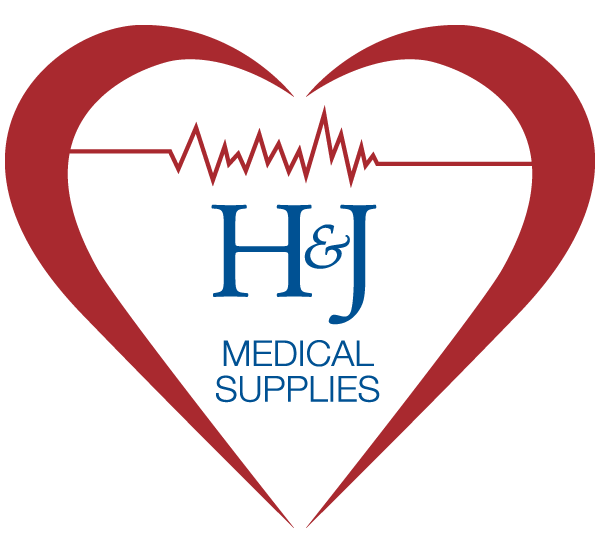H&J Medical Supplies Rental Hub
An Informational Guide to Renting Medical Equipment
Overview
Renting medical equipment can be an important step in managing short- or long-term healthcare needs. This page provides general information on how individuals residing in New York State might approach renting medical equipment under four different payment circumstances:
- NY Medicaid (for those who qualify under New York State’s Medicaid program)
- Medicare (federal health insurance for certain individuals, such as those 65+ or with qualifying disabilities)
- Private/Commercial Insurance (employer-sponsored or individual plans)
- Private Pay (out-of-pocket payments without insurance coverage)
The guidance below outlines the typical process to request, qualify for, and rent medically necessary equipment. Always verify details with your healthcare provider, insurance carrier, or relevant agency to ensure you meet all requirements.
Renting Through NY Medicaid
If you have NY Medicaid, many medically necessary rentals (e.g., wheelchairs, hospital beds) may be covered. Below are common steps:
- Check Eligibility: Confirm that your NY Medicaid coverage is active. You may need to contact your local Department of Social Services or review your Medicaid ID card.
- Obtain a Prescription or Order: Your doctor or healthcare provider typically needs to submit documentation that the equipment is medically necessary.
- Select H&J Medical Supplies Inc. (Medicaid-Approved): As a Medicaid-approved supplier, we can verify your benefits and assist you with the rental process. If you prefer, you may also locate any other Medicaid-approved provider in your region, but H&J Medical Supplies Inc. is always here to help.
- Review Coverage Limits: Ask about rental periods, coverage caps, or prior authorization requirements. If the equipment is deemed necessary, Medicaid may cover part or all of the monthly rental.
- Complete Rental Paperwork: Sign a rental agreement provided by H&J Medical Supplies Inc. (or your chosen supplier), ensuring you understand your responsibilities for care, maintenance, and eventual return of the equipment.
Note: Coverage details can vary by item type and medical necessity. Always confirm with your caseworker or Medicaid office for the most current rules.
Renting Through Medicare
Medicare (particularly Part B) covers certain durable medical equipment (DME) when prescribed by a Medicare-enrolled physician. Commonly rented items include home oxygen equipment, wheelchairs, and hospital beds. Here’s a simplified process:
- Obtain a Doctor’s Order: Your healthcare provider must document why the equipment is necessary, including relevant diagnoses and expected use.
- Find a Medicare-Contracted Supplier: Choose H&J Medical Supplies Inc. or another supplier that is enrolled in Medicare and meets all conditions (e.g., for DMEPOS Competitive Bidding Areas).
- Check Deductibles & Copays: If you have Original Medicare, Part B typically covers 80% of the allowable amount after your deductible. You’re responsible for the remaining 20%, unless you have supplemental coverage (e.g., Medigap).
- Sign a Rental Agreement: If working with H&J Medical Supplies Inc., we can bill Medicare directly. You may need to provide relevant paperwork and show proof of your Medicare card.
- Ongoing Rental Period: Some items switch from rental to purchase if you need them long-term. Check with H&J Medical Supplies Inc. or your supplier on how many months of rental Medicare covers.
Tip: Medicare Advantage (Part C) plans might have different rules or networks, so contact your plan administrator for specific instructions.
Renting Through Private/Commercial Insurance
For individuals with employer-sponsored or individual health plans, coverage for rental medical equipment can vary widely. Here’s a common approach:
- Confirm In-Network Suppliers: Contact your insurance to find DME suppliers in their preferred network. Using out-of-network providers may increase costs. H&J Medical Supplies Inc. can confirm if we are in-network for your plan.
- Get Pre-Authorization: Many private insurers require prior authorization or a Certificate of Medical Necessity to verify medical need before they approve payment.
- Ask About Coverage Limits or Copays: Deductibles, coinsurance, and copay amounts depend on your plan. You may be responsible for a percentage of the rental fee each month.
- Sign Rental Documents: Just like with other programs, you’ll need to sign a rental agreement stating your responsibilities for equipment care and return. H&J Medical Supplies Inc. will guide you through the forms and explain any details.
- Submit Claims (If Required): Depending on the arrangement, H&J Medical Supplies Inc. can often bill your insurance directly, or you might need to file claims yourself. Keep receipts and insurance forms organized.
Reminder: Policies differ among private insurance carriers. Check your plan’s summary of benefits or call customer service to confirm coverage details before renting equipment.
Renting Through Private Pay (Self-Pay)
If you do not have insurance coverage, or choose not to use it, you can still rent medical equipment by paying out of pocket. This typically involves:
- Research Rental Rates: Compare pricing among suppliers, including H&J Medical Supplies Inc., to find the most cost-effective option.
- Discuss Payment Terms: Some suppliers (including H&J Medical Supplies Inc.) may offer discounts for longer rental periods or require security deposits. Verify total costs before signing.
- Sign a Rental Contract: A private pay agreement outlines payment schedules, maintenance responsibilities, and any applicable late fees. H&J Medical Supplies Inc. will ensure you understand all terms.
- Arrange Delivery or Pickup: Coordinate with H&J Medical Supplies Inc. to receive and set up the equipment. You may be responsible for additional fees, such as delivery or installation.
- Keep Receipts for Records: Store all paperwork in case your situation changes and you decide to submit claims later (if you obtain insurance down the line).
Note: Private pay ensures you have immediate access to equipment without waiting for insurance approvals, but costs can be higher if you need the equipment for a prolonged period.
Disclaimer
The information on this page is provided as a general educational guide. It does not constitute medical, legal, or financial advice. Coverage and eligibility requirements for renting medical equipment can differ based on individual circumstances, regional regulations, and insurance plan policies. Always consult your healthcare provider, insurance carrier, or relevant agency for the most accurate and personalized guidance.
